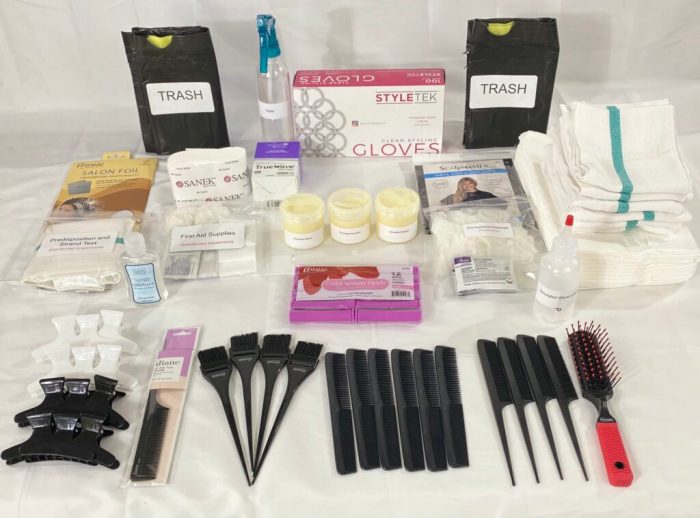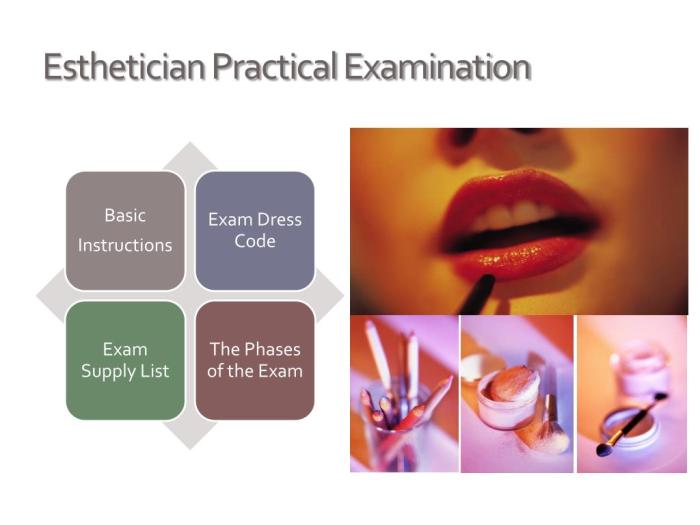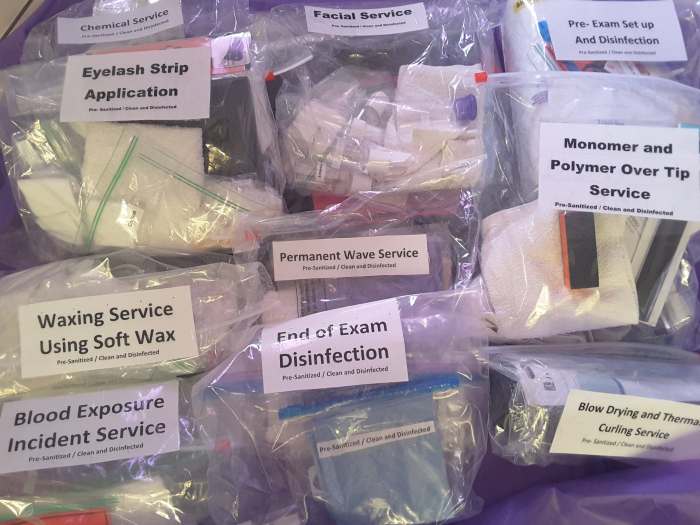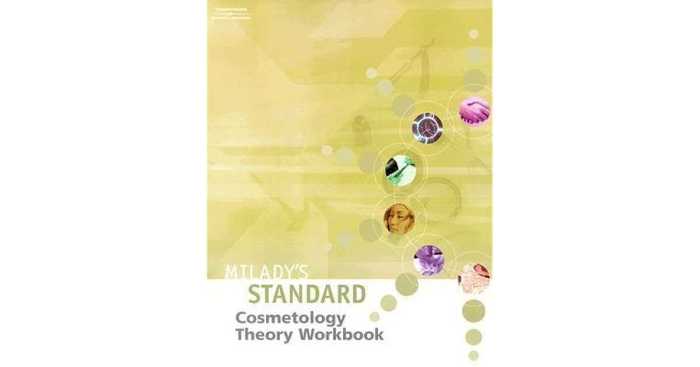Psi cosmetology practical exam tennessee – The PSI Cosmetology Practical Exam in Tennessee stands as a pivotal milestone in the journey of aspiring cosmetologists. This comprehensive guide delves into the intricacies of the exam, empowering candidates with the knowledge and strategies necessary to achieve success. Prepare to unravel the secrets of the PSI Cosmetology Practical Exam and embark on a path towards professional excellence.
This guide provides a roadmap for exam preparation, station breakdown, common tasks and skills, scoring and evaluation, and invaluable tips for maximizing your chances of success. Whether you’re a seasoned professional or a budding cosmetologist, this resource will serve as your trusted companion throughout your preparation journey.
PSI Cosmetology Practical Exam Tennessee

The PSI Cosmetology Practical Exam is a mandatory assessment for aspiring cosmetologists in Tennessee. It evaluates their practical skills and knowledge in various areas of cosmetology.
The exam consists of six stations, each testing a specific aspect of cosmetology. Candidates are given a limited time to complete tasks at each station, demonstrating their proficiency in haircutting, styling, chemical services, skin care, and nail care.
Exam Preparation
Thorough preparation is crucial for success on the PSI Cosmetology Practical Exam. Candidates should:
- Study the exam blueprint to familiarize themselves with the tasks and skills tested.
- Practice on mannequins and live models to develop their technical abilities.
- Attend workshops or classes to enhance their knowledge and skills.
- Take mock exams to simulate the exam environment and identify areas for improvement.
Station Breakdown, Psi cosmetology practical exam tennessee
| Station | Tasks | Time Limit | Special Equipment |
|---|---|---|---|
| Haircutting | Cut and style hair according to specifications | 60 minutes | Scissors, combs, clippers |
| Styling | Create a hairstyle using heat styling tools | 45 minutes | Blow dryer, curling iron, flat iron |
| Chemical Services | Perform a perm or hair color service | 90 minutes | Perm solution, hair color, gloves |
| Skin Care | Cleanse, exfoliate, and apply makeup to a client | 45 minutes | Skin care products, makeup brushes |
| Nail Care | Manicure and apply artificial nails | 45 minutes | Nail polish, nail files, cuticle pusher |
Common Tasks and Skills
Common tasks and skills tested on the exam include:
- Proper use of tools and equipment
- Cutting and styling hair in various techniques
- Performing chemical services safely and effectively
- Providing skin care treatments and makeup application
- Manicuring and applying artificial nails
Scoring and Evaluation
Candidates are evaluated on their performance at each station. Examiners assess their technical skills, accuracy, safety protocols, and overall professionalism.
To pass the exam, candidates must demonstrate proficiency in all areas and meet the minimum passing score set by the Tennessee Board of Cosmetology and Barber Examiners.
Tips for Success
To maximize their chances of success, candidates should:
- Practice regularly and develop confidence in their skills.
- Arrive at the exam well-prepared and on time.
- Read the instructions carefully and ask for clarification if needed.
- Stay calm and focused during the exam.
- Manage their time wisely and prioritize tasks.
FAQ Section
What is the purpose of the PSI Cosmetology Practical Exam in Tennessee?
The PSI Cosmetology Practical Exam assesses the practical skills and knowledge of aspiring cosmetologists in Tennessee, ensuring they meet the state’s standards for licensure.
How many stations are there on the exam?
The exam typically consists of four stations, each testing specific aspects of cosmetology, such as hair styling, skin care, and nail care.
What are the time limits for each station?
Time limits vary depending on the station, but candidates typically have 15-30 minutes to complete each task.
What materials do I need to bring to the exam?
Candidates are responsible for bringing their own tools and supplies, including scissors, brushes, combs, and any other equipment required for the specific tasks.


